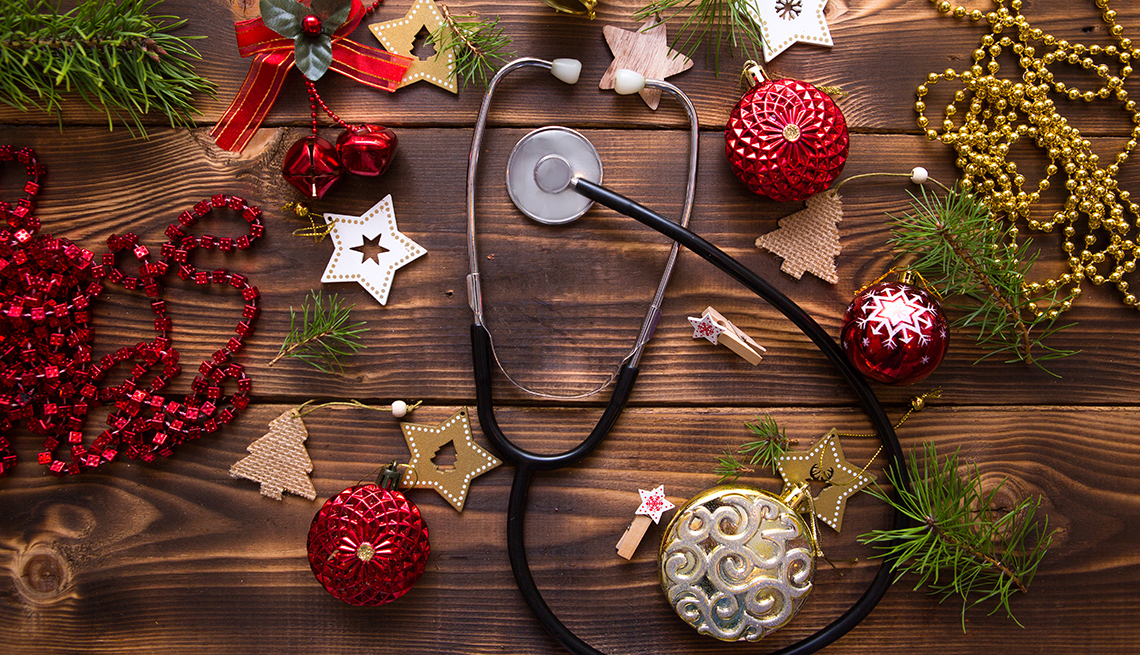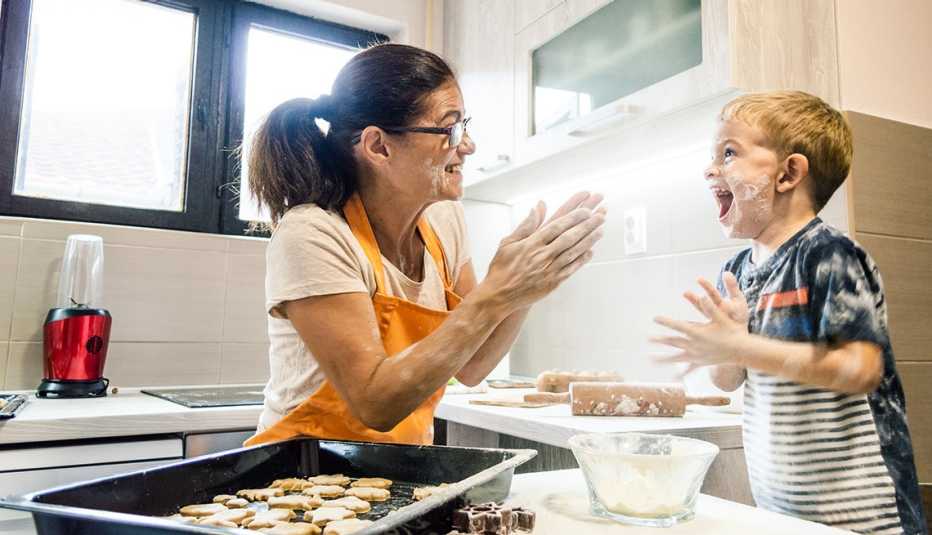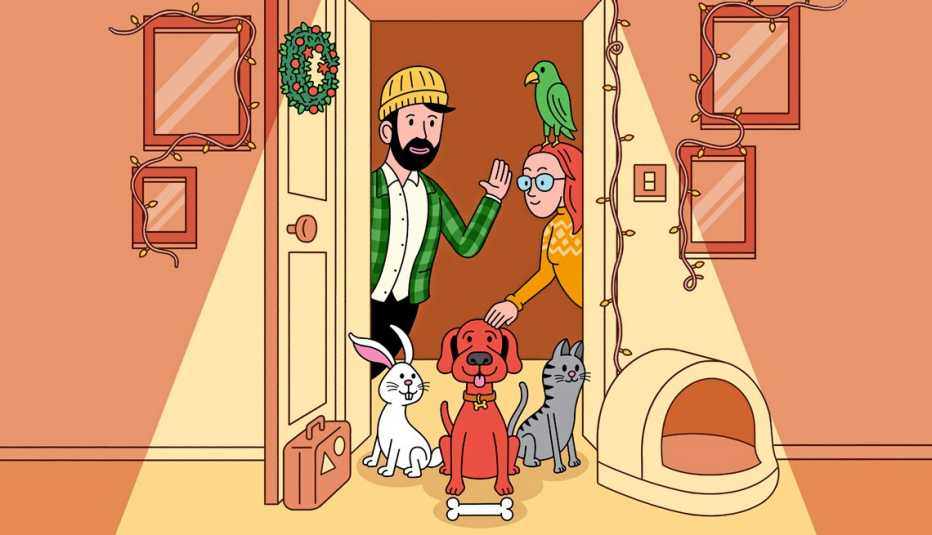Here are seven things to help make this time of year safer.
1. Plan ahead to make sure you have your medications on hand.
If you know you’ll need medication refills, order them in advance so you aren’t racing around pharmacies during the holidays, Lloyd-Jones says. If you’ve been putting off a doctor visit to check blood pressure, or lab work to check cholesterol or blood glucose levels, do it now.
2. Bundle up against the cold.
The frigid temps can affect your heart, especially if you already have heart disease. “Cold air can raise blood pressure, and also slow down the flow of blood to the heart, which can lead to angina, or chest pain,” Goldberg says. A 2018 study published in JAMA Cardiology found a big jump in heart attacks in the cold, especially when the temperature dips below freezing. Goldberg recommends that you cover your mouth and nose with a scarf to help warm the air you breathe.
3. Don’t overindulge on holiday meals and treats
Resist the urge to pig out: One study of almost 2,000 heart attack patients found that a single act of overeating could quadruple the chance of having a heart attack on the same day. At holiday celebrations, Goldberg recommends that you skip foods heavy in saturated fat, sugar or salt, and limit yourself to just one cocktail throughout the evening. Binge drinking has been linked to holiday heart syndrome. “When you drink too much alcohol, you can worsen atrial fibrillation,” a condition that causes irregular heartbeat and is present in many older adults, says Khan.
Consider a post-meal walk too: A short walk after eating lowers blood sugar levels more than do walks before a meal, according to a 2018 study published in the medical journal Nutrients.
4. Keep up healthy habits.
Make a pact with yourself during the holidays that you’ll do something good for you every day, whether it’s staying active, getting enough sleep or eating a healthy breakfast every morning. “If you commit to taking care of yourself, you’ll be less likely to slip up with unhealthy habits like smoking, drinking too much or overeating,” Goldberg says.
5. Avoid overexertion.
Unless you’re in great physical shape, leave the shoveling to a younger family member. Otherwise, if something feels like a physical stretch for you, think twice about taking it on during the holiday red zone. Snow removal can trigger heart attacks. Nearly 200,000 people were treated in emergency rooms for incidents related to snow shoveling from 1990 to 2006, according to a study published in the American Journal of Emergency Medicine. All of the 1,647 deaths recorded in the study were cardiac related.
6. Listen to your body.
According to the American Heart Association, the biggest increases in holiday heart attack deaths are among people who are not in a hospital, so it’s important to recognize the symptoms of a heart attack and seek care immediately. “Don’t ignore heart attack warning signs because you don’t want to spoil the holidays, the consequences could be much worse,” American Heart Association Chief Clinical Science Officer Mitchell S.V. Elkind, M.D., said in a news release.
Symptoms of a heart attack can mimic how you feel after you eat a big meal or rush around, says Ruthmann. Pay attention if you experience signs like shortness of breath or chest pains, especially if these don’t occur right after you’ve eaten. If you notice these, let your doctor know right away. “We find that a lot of people ignore symptoms because they don’t want to miss a certain family dinner or holiday event,” Ruthmann says. “The best gift you can give yourself is to focus on your health.”
7. Brush up on CPR.
The uptick in heart attacks this time of year “also calls attention to the need for increased awareness of knowing how to perform hands-only CPR,” Elkind said. “You could be out holiday shopping, enjoying an office party or spending time at a family gathering and witness someone having a heart attack and going into cardiac arrest. Starting CPR immediately and calling 911 could be the difference in life or death in those situations. Hands-only CPR is something nearly everyone can learn and do.” The American Heart Association has hands-only CPR tutorials on its website.
Editor’s note: This story, originally published Dec. 16, 2021, has been updated to include new information.






































































